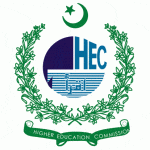Dr Muhammad Mumtaz | Assistant Professor, Department of Public Administration, Fatima Jinnah Women University, Rawalpindi
Higher education is the backbone for the development of any country.Every country in the world puts much emphasis on improving its education system, particularly higher education to transmit existing knowledge, create new knowledge and stimulate analytical and creative powers in order to transform a society.
Like any other country of the world, Pakistan has placed many efforts to improve its education system since its independence in 1947.
Pakistan’s higher education had gone through evolution processes to devise an effective education system.
Various institutional mechanisms and arrangements have been done with the aim to bring a competitive and quality based educational system in the country.
Also Read: Reviving Pakistan’s Higher Education
Efforts have been continuously taken whether it is political or the military government in the country.
Back in 2002, in Musharraf’s reign Higher Education Commission (HEC) was established to promote the quality education system in the country.
It was a promising initiative particularly to promote educational research and development in the country.
HEC was tasked to bring reforms in faculty development; promoting excellence in learning and research; developing leadership, management and governance and physical and technological infrastructure development.
However, HEC has not been able to attain much or produce remarkable desired achievements so far.
There can be multiple reasons for HEC’s weaknesses or failures to produce substantial results.
These include budget issues, devolution of higher education to provinces on the heels of 18th constitution amendment, promotion of poor research culture and absence of proper implementation systems for its policies etc.
However, to me on top of that is the political interference in HEC affairs compromising its autonomy
It was observed during the tenure of Dr.Javaid Laghari’s chairmanship when immense political pressure from sitting government and opposition parties were inserted for authentication of degrees of politicians where many degrees were found fake.
Also Read: Top 10 educational websites to teach you for free!
We all are familiar with the case of Dr.Tariq Banuri’s removal from HEC chairmanship. Political interference in any institution only brings destruction and shakes the foundation of any institution.
There are rumours that yet again the process of chairman HEC is seen from the lens of political favourites.
The HEC chairman slot is being filled in the coming weeks.It was reported that several key educationists are trying their luck for the said post and using high-level lobbies and approaching political personalities to secure the position.
Different lists of panels have emerged in the media over the last couple of weeks, with some names of questionable credibility.
However, the latest report appearing in a contemporary daily presents three names for the position forwarded by the Establishment Division to the Prime Minister for final approval.
These three names are: Prof. Anwar Gilani (HI) leading the list, followed by Prof. Khursheed Khan and Dr. Mukhtar Ahmad holds the third position on the list.

Good to see that the Search Committee chaired by the Minister for Education has eventually identified Prof. Anwar Gilani on the top, who can be ideal for the chairmanship position due to his high profile and his vast experience of leading national and international top ranked institutions.
Also Read: Pakistan is a Part of International Joint Research on River Dolphins
Incidentally, Prof.Gilani was also shortlisted amongst four finalists along with Dr.Banuri in the last cycle in 2018.Prof. Gilani is well known for his non-controversial personality and enjoys high integrity and credibility across Pakistan and beyond.
He has the experience of working both in private (Aga Khan University for 30 years) and public sector universities spread over three provinces, who held key leadership positions in Pakistan and abroad that speaks of his leadership potential.
He has served as a member of the Search Committee for Vice Chancellors in Sindh and Khyber Pakhtunkhwa.
Currently he is serving on Senate/Syndicate/Board of Governors for over a dozen of Universities as HEC representative as well as the Convener of different policy making National Committees constituted by HEC which includes Ethical Appeal Review Board and Committee to review Anti-Plagiarism Policy.
In recognition of his national/international contribution, Prof.Gilani has been conferred three civil awards by the President of Pakistan (Pride of Performance, Sitara-i-Imtiaz and Hilal-i-Imtiaz), in addition to the title of Distinguished National Professor and Life-Time Academic Achievement Award by HEC.
Moreover, he has been conferred several national/international other awards including Boehringer International Research Award (Germany); Salam Prize by TWAS (Italy); Ibn-Al-Haytham Prize and Aga Hassan Abdi Gold Medal by Pakistan Academy of Science and Dr.ZA Hashmi Gold Medal by Pakistan Science Foundation.
Also Read: Pakistan’s PERIA to Use Block Chain Technology to Revamp Educational System
Looking at the present challenges of higher education in Pakistan and leadership crises of HEC, Prof.Gilani seems to be an ideal professional who can address different challenges that HEC faces, utilizing his vast exposure and experience and leadership potential.
He is well familiar with HEC set-up due to his involvement in different policy matters since the inception of HEC.
Transparent and merit-based appointment for the position is a test case for the government.
This is one of the major appointments by PM Shehbaz Sharif since the coalition government took oath on April 11, 2022.
It is hoped that merit will prevail for this key position.The eyes of the nation are on this important decision of the government and this appointment will certainly expose the system of meritocracy in important postings.
Also Read: HEC Budget Slashed in Half
![]()





